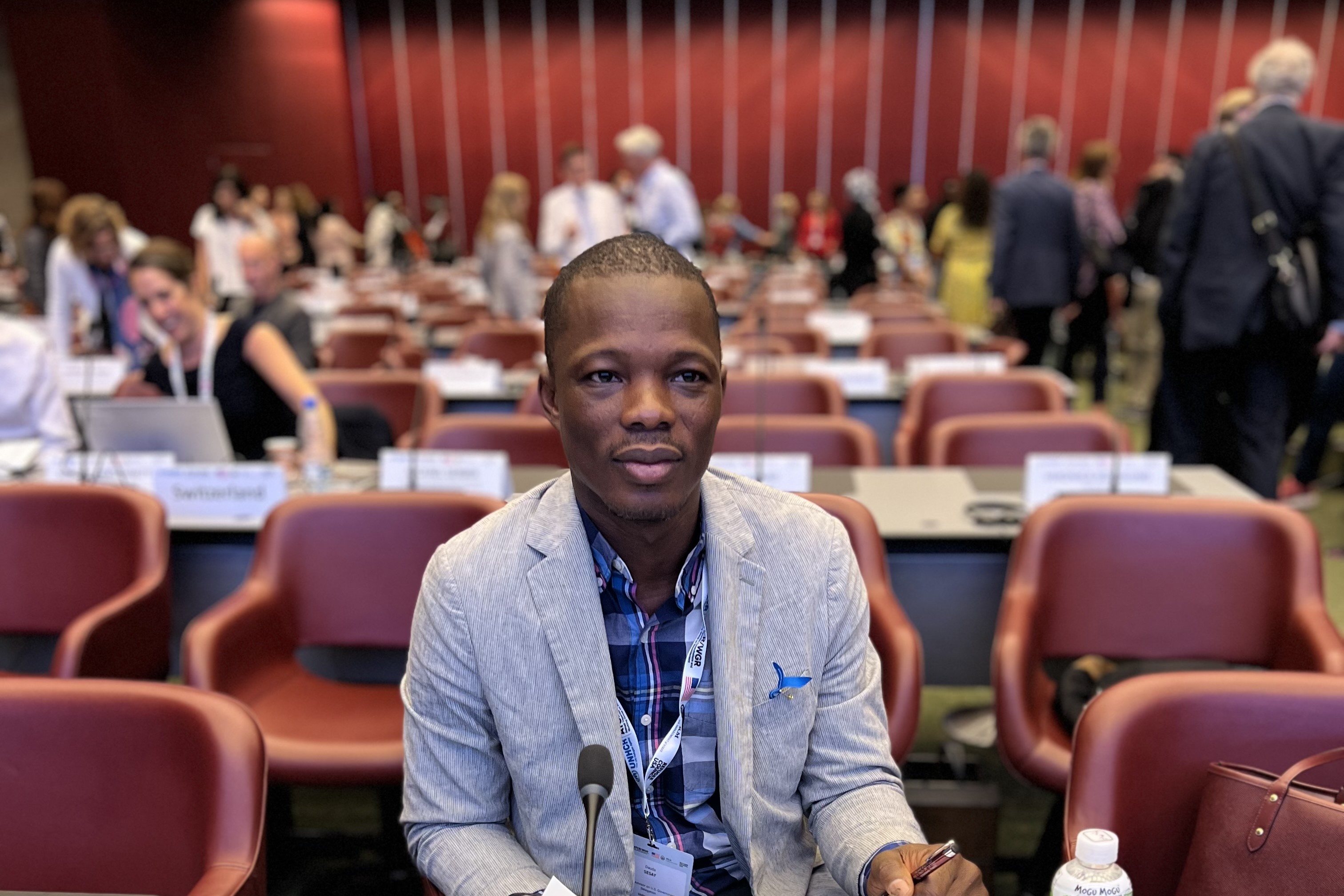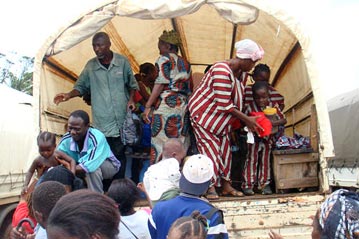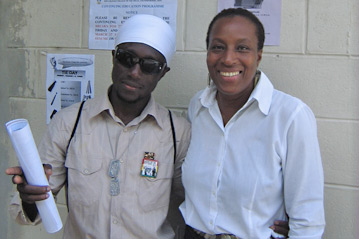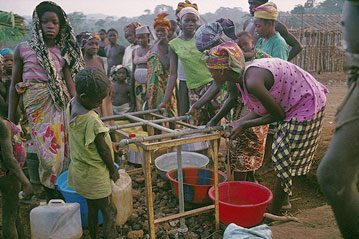The first of thousands of Sierra Leone refugees begin returning home
The first of thousands of Sierra Leone refugees begin returning home

FREETOWN, Sierra Leone, Dec. 7 (UNHCR) - The first of an estimated 11,000 refugees began the second and final leg of their return home to Sierra Leone's north-west region this week.
The refugees had returned from Forécariah in neighbouring Guinea during the past several months, but because of continuing insecurity in many parts of the country, they were housed in temporary settlements in Lungi, north of the capital.
With the Sierra Leone army re-established in Kambia and Port Loko districts and the return of both national authorities and tribal chiefs, UNHCR considered that it was safe to begin the second phase of return to their original homes.
It was the first time since the conflict began more than a decade ago that the agency had undertaken such an operation, underscoring a widening sense of stability in parts of the war-wracked nation.
The erratic movement of the returnees reflected the unstable and constantly changing security conditions in many parts of West Africa. During Sierra Leone's war, hundreds of thousands of persons fled to neighbouring countries, but some were forced to flee yet again when insecurity swept those regions.
On Monday 485 persons made the 85 kilometre, two-and-a-half hour trip by truck to Kambia district while seven pregnant women and two weak children went by car. Many were in tears as they completed the journey home after years of exile and suffering.
Other convoys were planned in coming days. A total of 7,533 civilians were scheduled to return to Kambia District and 3,023 refugees to neighbouring Port Loko district by the end of the month.
Once home, returnees receive a two-month food ration, kitchen utensils and other items, while UNHCR and its local partners have been rehabilitating clinics, schools, and water and sanitation projects.








